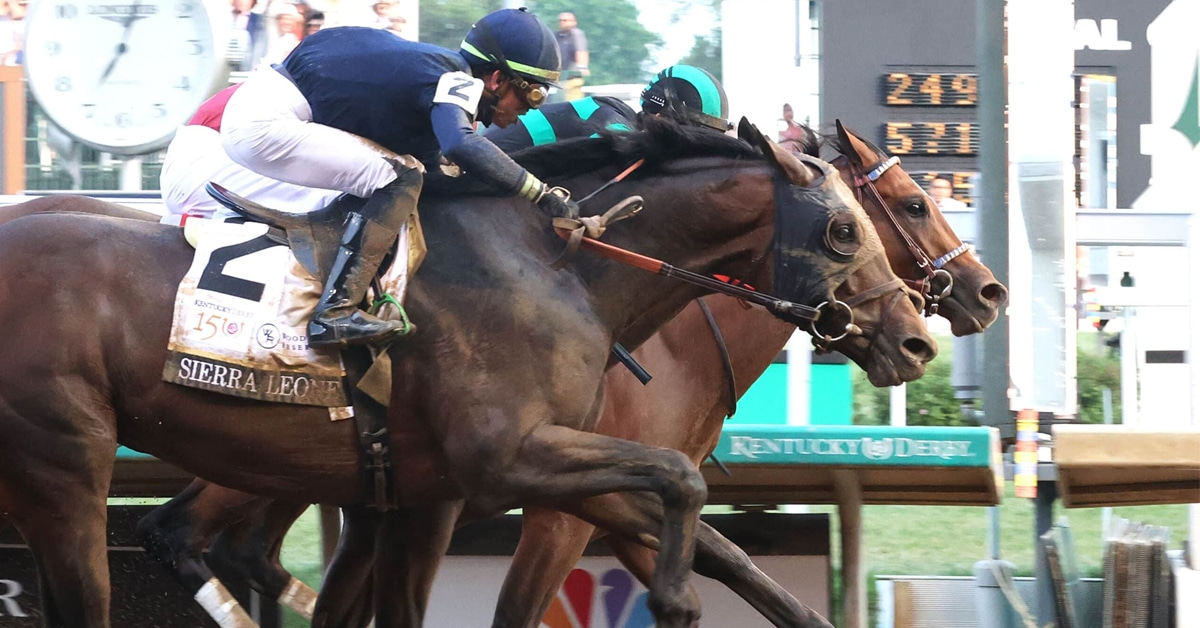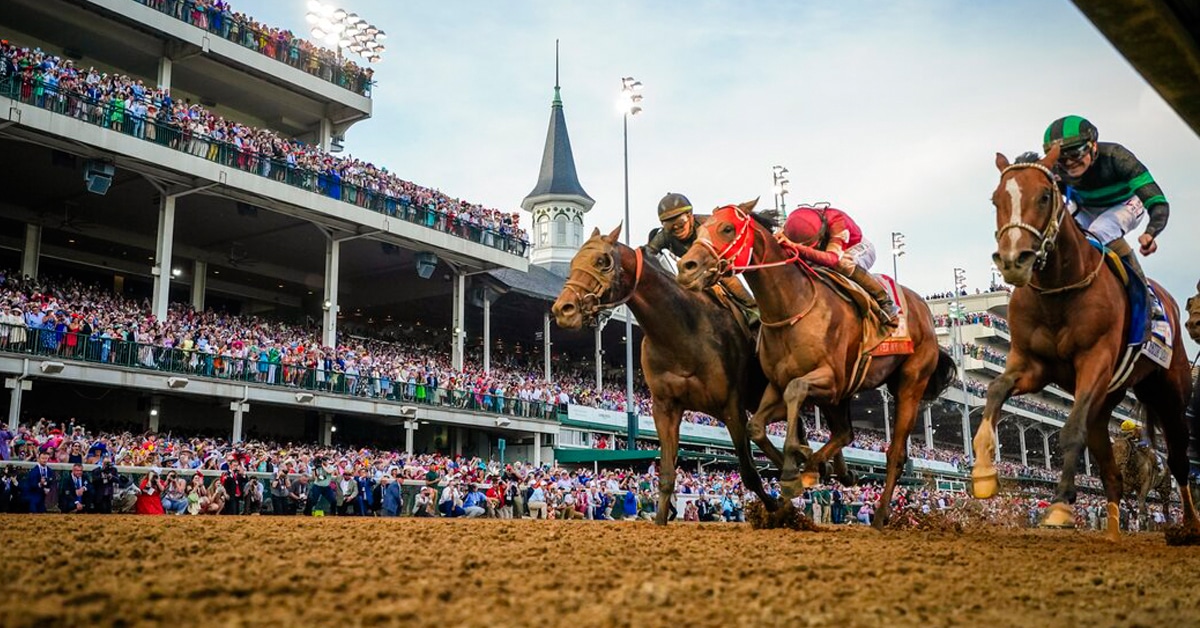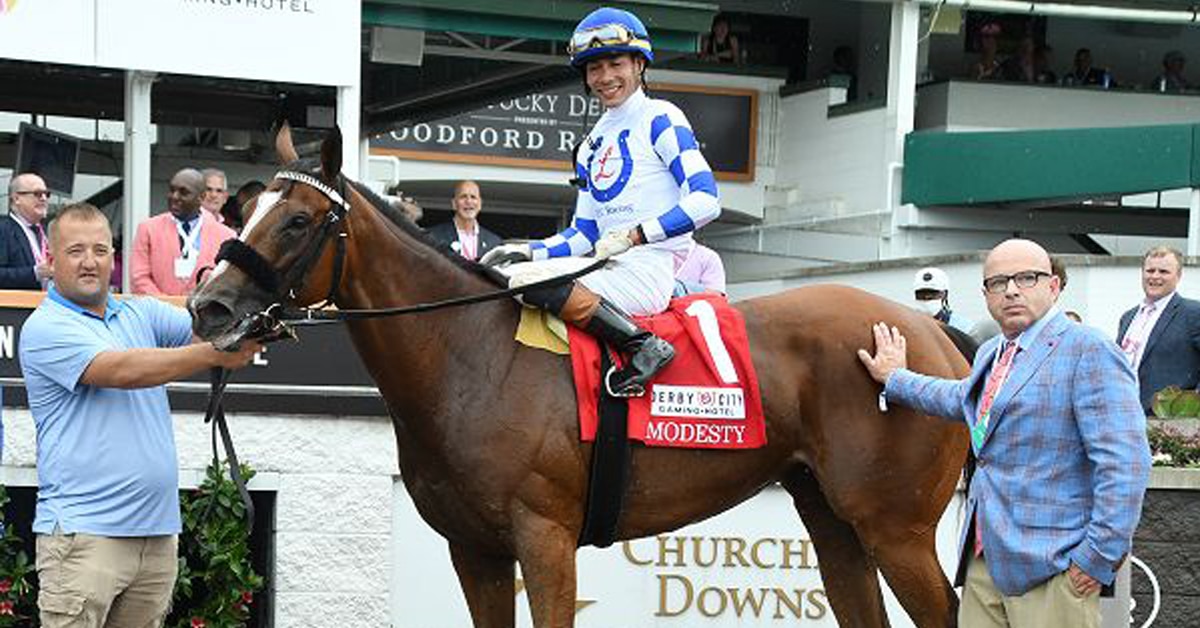Toronto, ON – Canadian handicapper Brian Troop will attempt to capture his second straight six-figure bonanza this weekend, when he competes in the prestigious Horse Player World Series at The Orleans Hotel and Casino in Las Vegas. The tournament features an estimated top prize of $337,500. It kicks off Thursday and runs for three days, concluding on Saturday, February 20.
Hot off on an impressive wire-to-wire score in the Daily Racing Form/NTRA National Handicapping Championships (NHC) last month, the Barrie, Ontario resident is a contestant worth watching in his return to Las Vegas.
Troop set a new record on the first day of competition at the NHC, choosing horses that amassed Win and Place returns of $232.60 from the day’s 15 permitted selections. While his second day was a far more modest $33.40, it was enough for the Canadian to hold off the closest of his 299 pursuers and take home the $500,000 winner’s share. “Winning the (NHC) contest by far exceeded anything I’ve ever done,” said Troop. “I finished second in three other contests. I never won anything more than $5,000. It was the right place for me to break my maiden.”
The way Troop qualified for the NHC almost seemed like he was destined for success. As in previous years, Troop drove to Turfway Park in Northern Kentucky and competed in a handicapping tournament that earned the top two finishers automatic NHC berths. Troop finished fourth – a respectable finish that turned serendipitous when it was announced that the one-two finishers had already qualified for the NHC. This development opened the door for Troop’s shot at a life-changing sum of money.
But, with four decades of experience playing horses, standardbred and thoroughbred, the 61-year-old says the win won’t change his life. “It’s not going to change me too much,” said Troop. “I won’t be playing any more or any less at the races. My handle each day is anywhere from $100 at the low end to $300 at the high end. That’s not going to change a lot.”
Last year, Troop played in 11 live tournaments, including the Woodbine Handicapping Challenge in August, and a handful of free online contests. By virtue of his NHC victory, he suggested that his tournament participation would likely increase. “I’m more interested in playing in tournaments,” he said. “That’s likely the only thing that will change. Instead of playing 10 tournaments, who knows how many I’ll play?”
While the prize money hasn’t sent Troop galloping to a travel agent in search of exotic destinations, he said he plans to play in a contest this year at Del Mar because he’s never been to any of the racetracks in California.
Troop started playing horses when he was in his early twenties, recalling a trip to Greenwood to play standardbreds in 1969. His renaissance as a tournament player came much more recently. “My first contest was when Woodbine started in 2000,” he said.
An accountant by profession, Troop said he’s participated in just about every tournament at the Toronto oval since then. “I’m a notorious last-minute enterer,” he said. “It was either the second or third year that I got shut out.”
Still eager to compete somewhere, Troop discovered a tournament at Keeneland on a Saturday in early December and made the trip to Lexington to take a shot. On the way home, he also took part in a contest at Turfway. Since his first venture to a contest out of town, Troop has made the Kentucky trip just about every year. He’s also added other destinations to his tournament travel log. “I kept playing more tournaments every year,” he said, explaining that the general format of most tournaments plays to his personal strength. “I’m a pretty decent handicapper, but I’m a very bad bettor. I can play a Pick 3 or Pick 4 and somehow mess it up. When you’re playing in tournaments, it’s strictly handicapping. I’ve always been able to pick a lot of horses between 7-1 and 15-1.”
In a tournament, it’s pivotal to find winning horses that are dismissed at high odds because each entrant is usually only allocated a certain number of plays over the course of the day. As a result, wasting your picks on 8-5 and 9-5 shots isn’t likely to improve your score quickly. “In tournaments, you’re looking for a mistake,” he affirmed. Troop was able to build himself such a commanding lead at the NHC because he was able to unearth three or four ‘mistakes’ – winners sent off at between 10-1 and 15-1.
It can be just as valuable to adopt Troop’s advice in a day-to-day wagering setting as it is in a tournament. “People aren’t going to win picking favorites,” he continued. “I don’t care how good you are. You have to find something that the other guy can’t find.” This is why the second day of the NHC tournament was a struggle for Troop. As hard as he tried, he went into the session with barely a short list of horses he liked. “When you play in a handicapping tournament and you don’t really like anything, that means you have to guess a lot,” he said. “I think I got lucky.”
Not a trainer making a living via the entry box, nor a horseplayer in search of riches at the betting window, will downplay the effects of racing luck. Troop has played horses long enough to know that at one time or another, everyone lands on the wrong side of a head-bob or a bad start. It’s learning how to stay the course after it happens that leads to success. “If I hit a 20-1 shot, I don’t let it go to my head,” he said. “If I take a bad beat, I try to get it out of my mind in the next two or three minutes. If you’re in a tournament, you have to get back focused.”
If there’s one last piece of advice to be taken from the 2010 handicapping champion, it’s to look at the racetrack as a classroom that never closes. “You never know it all. It can be a humbling sport. That’s the thing that keeps it interesting,” he said. “If you go thinking you know everything, I guarantee you’ll lose. Sometimes I come home from the races asking myself, ‘Have I learned anything in 40 years?'”
If Troop catches himself asking that question, he needs only to reflect on a memorable weekend in January when he led a field of 300 from gate to wire. “I guess I finally proved to myself I do know a little bit about handicapping,” he said.
More from Canadian Thoroughbred:





